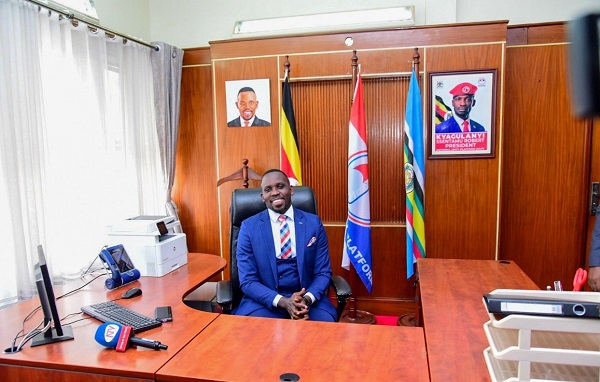On Tuesday, Justice and Constitutional Affairs Minister Norbert Mao introduced a contentious proposal in Uganda’s Parliament that has sparked a significant debate. The suggestion revolves around the creation of additional speaker slots, aiming to ensure that the legislative body can function even when Deputy Speaker Thomas Tayebwa is unavailable. This development comes as Speaker Anita Among is currently on maternity leave.
Constitutional Questions Arise
The proposal, however, has raised constitutional concerns. Article 82(1) of Uganda’s Constitution grants authority over plenary sittings exclusively to the Speaker and Deputy Speaker. Attempting to fill this gap by introducing offices for assistant deputy speakers would likely have an impact on the already stretched public sector wage bill.
Economic Downturn Intensifies Worries
Economists and political scientists have weighed in on the issue, pointing out the potential financial strain. Fred Muhumuza, a macroeconomist at Makerere University, expressed concerns about the economic climate. He emphasized the need to avoid increasing public expenditure while the country’s financial resources are dwindling.
Constitutional Amendment Demands
Political scientist Prof. Sabiti Makara highlighted that such a proposal would necessitate amending the Constitution, raising questions about why the focus is on this specific change. He also emphasized Uganda’s limited budgetary resources, noting that the current 557-member Parliament already presents challenges.
Debate on Necessity
Professor Makara questioned the necessity of this new position, as Uganda has functioned without an assistant deputy speaker since gaining independence. He argued that creating additional layers of administration within Parliament without clear justification would be ill-advised.
Resource Management Alternative
Julius Mukunda, the executive director of Civil Society Budget Advocacy Group (CSBAG), suggested an alternative approach. Instead of creating an assistant speaker role, regulations could be implemented allowing the Speaker to appoint a committee chairperson to preside over proceedings in the Speaker’s and Deputy Speaker’s absence.
Opposition’s Position
The shadow attorney general shared his perspective, opposing any increase in the costs of public administration. He emphasized that there is no need for further constitutional offices in Parliament and suggested the formation of a panel from which any member of Parliament could be randomly selected to act as a temporary presiding officer when necessary.
Financial Burden of Parliament
The financial implications of Uganda’s Parliament were also brought to attention. Each of the 557 lawmakers, in addition to the 26 ex officio members, receives a substantial monthly salary and a range of other perks. Ministers and ex officio members who do not represent constituencies do not receive the constituency fund. Additional allowances and benefits add to the already significant cost.
Cost of Maintaining Speaker and Deputy Speaker Offices
The Speaker and Deputy Speaker’s offices come with their own considerable expenses. From monthly allowances and chauffeured cars to domestic staff and significant per diem allowances, these positions carry a substantial financial burden on the state.
Table: Benefits for Speaker and Deputy Speaker
| Benefits | Speaker | Deputy Speaker |
|---|---|---|
| Monthly Allowance | 60% of sitting Speaker’s salary | 60% of sitting Deputy Speaker’s salary |
| Chauffeured Car | Four-wheel, 3,500-4,000cc | Four-wheel, 3,500-4,000cc |
| Security Guards | Two | One |
| Domestic Staff | Two | One |
| Medical Care for Retired | Yes | Yes |
| Monthly Allowance for Utilities | 33 currency points (Shs660,000) | 33 currency points (Shs660,000) |
| State Funeral and Public Holiday | Yes | Yes |
| Inheritance Benefits | Spouse(s) upon Speaker’s death | Spouse(s) upon Deputy Speaker’s death |
| Travel Abroad Per Diem | $1,250 (Shs4.7m) per night | $1,250 (Shs4.7m) per night |
| Other Benefits | Various, undisclosed | Various, undisclosed |
The proposal to expand the number of speaker slots in Uganda’s Parliament has ignited a fiery debate, with critics voicing concerns about its impact on the nation’s economy and the already strained public sector wage bill. As discussions continue, the financial implications of such a move and the constitutional changes required remain at the forefront of the conversation.




















